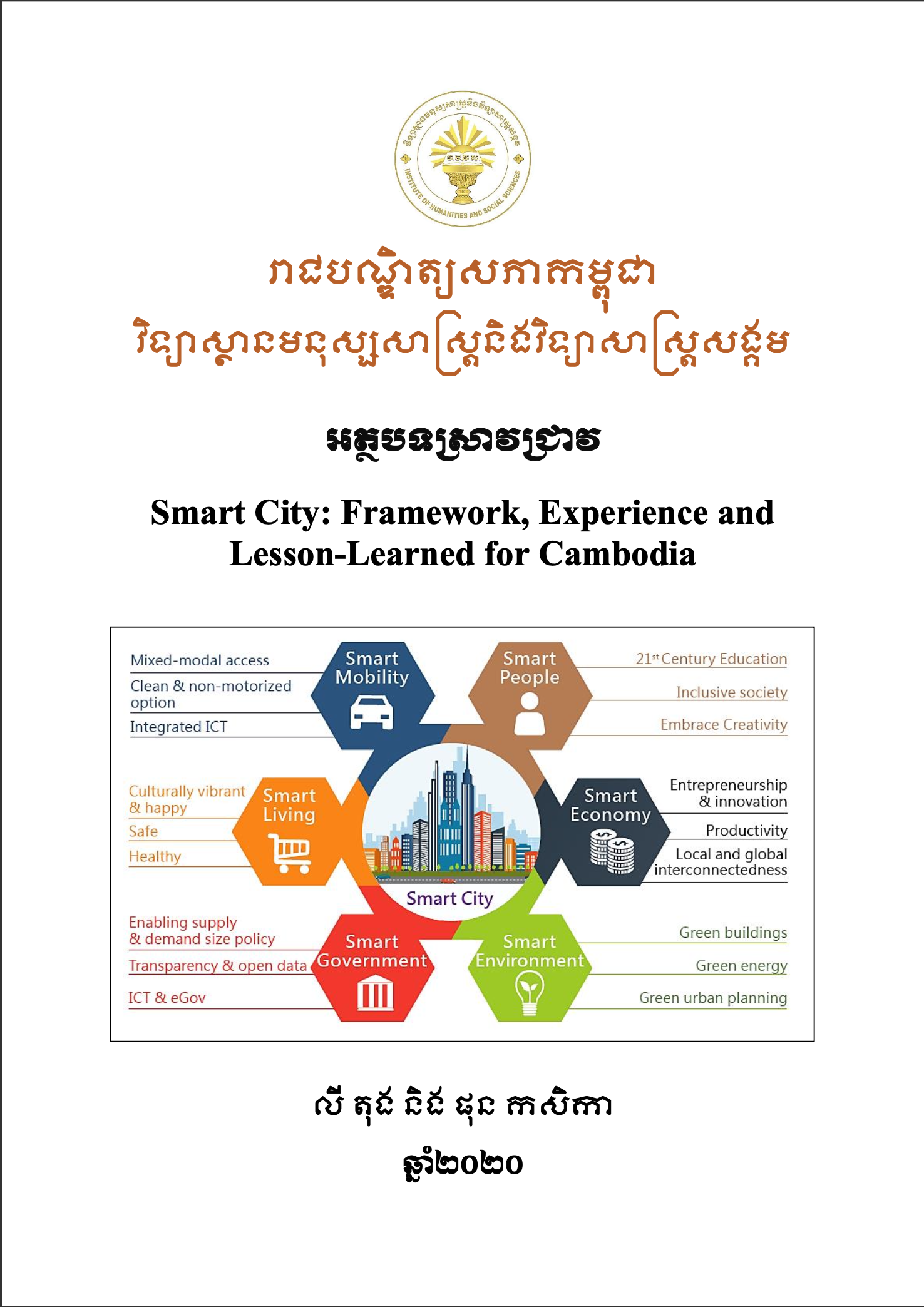Smart City: Framework, Experience and Lesson-Learned for Cambodia
ចេញផ្សាយនៅថ្ងៃទី៖ May. 30th, 2024
Smart city initiatives are becoming the trends toward not only to enhance social and economic development, but also to address specific challenges and issues arised from urbanization processes and climate changes etc. This paper looks at smart city from theoretical framework and strategic development perspective. The paper also identifies strategic experiences of some nations in developing their smart cities to be lesson-learned for Cambodia. As for global context, smart city framework involves utilizing technology, ICT and IoTs etc. to embed in its management and development processes. Smart City possesses six key elements namely (1) Smart Government, (2) Smart Environment, (3) Smart Economy, (4) Smart People, (5) Smart Mobility and (6) Smart Living. Learning from the experiences of some countries, smart city development project should focus on the country’s own context in term of technology, economic and social settings etc. From theoretical framework, the success of smart city initiative needs to involve three core principles: People, Processes, and Technology. For Cambodia, the government and all involved stakeholders should have clear vision and concrete policy so that smart city initiative will become a reality. Conceptualizing Cambodian situations as well as the experiences of some countries, these six development strategies are recommended: (1) define clearly the community for smart city, (2) study the community, (3) define key economic drivers, (4) develop smart city policy and framework (5) engage the citizen and (6) encourage private secotors for more investment.
